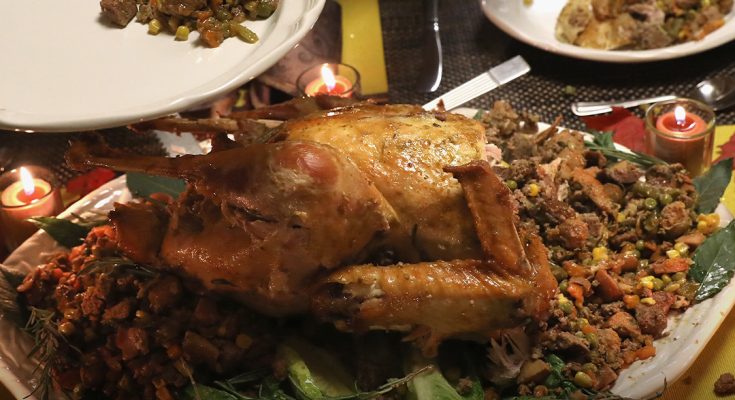In addition to sharing a resurfaced video showcasing turkey abuse on a farm, PETA has issued a bulletin notice announcing their plan to confront Thanksgiving shoppers outside a market.
The People for the Ethical Treatment of Animals (PETA) took to Instagram on November 23 to share a resurfaced video from 2006 that contains graphic footage displaying the severe mistreatment of turkeys. After watching the video, many netizens vowed never to eat turkey again.

User comment about PETA’s resurfaced 2006 turkey video, posted on November 23, 2024 | Source: Instagram/peta
The video shows an unidentified person accusing Butterball employees of sexually and physically abusing the turkeys that the food company slaughters to sell to the public.
The post also contains disturbing footage of these individuals performing such harsh acts, which the unidentified person claims they bragged about as well.
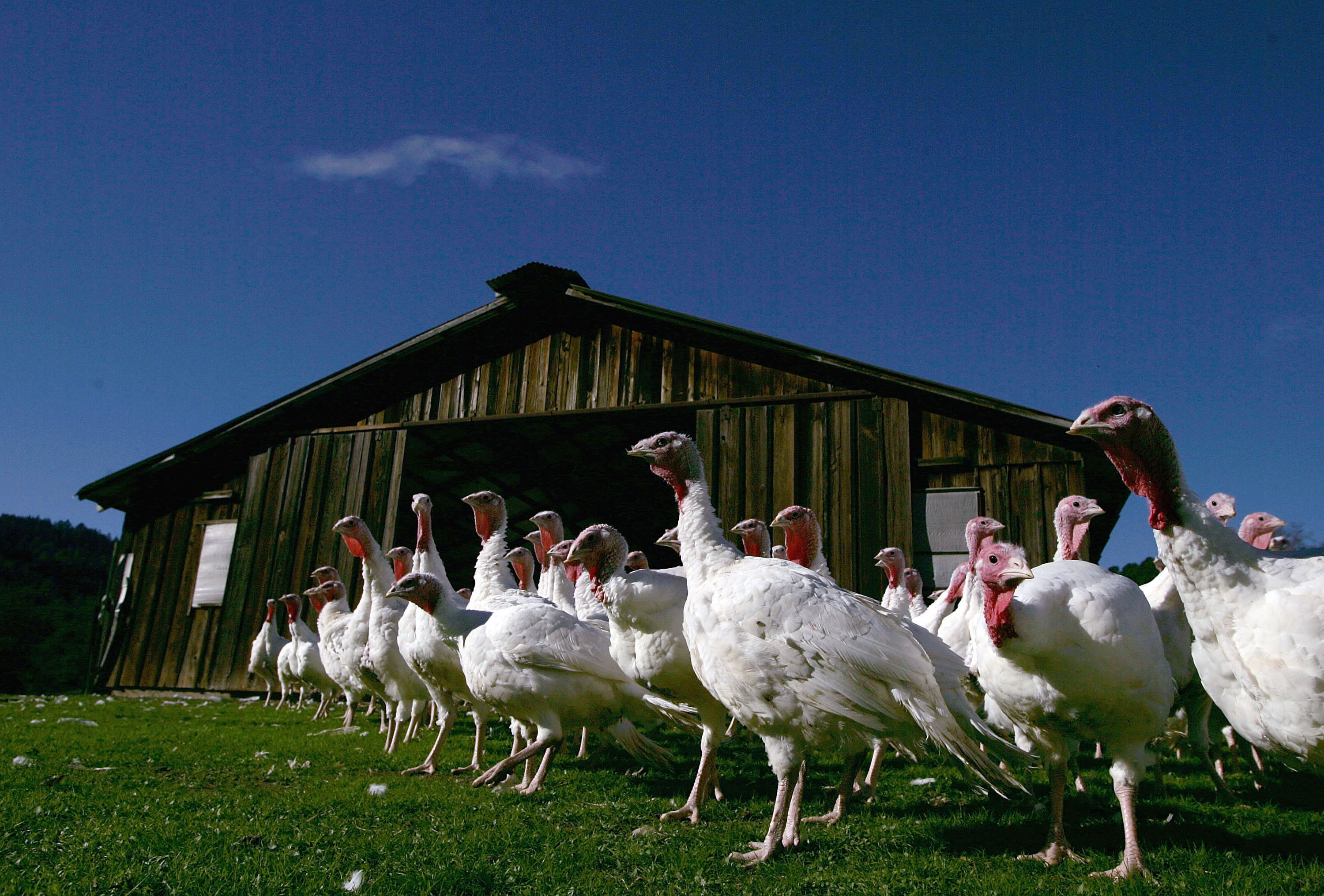
Turkeys on a farm in Sonoma, California on November 22, 2004 | Source: Getty Images
“Do you know what happened to your Butterball turkey before they were killed?” captioned PETA alongside their post. Social media users who have seen the post took to the comment section with strong reactions.
“My husband and I rarely eat turkey and we never make it for Thanksgiving. Watching this, our ‘rarely’ has turned into Never. Thank you for uploading this,” remarked an Instagrammer. Another echoed, “Thank you for posting this. I’ll never eat a turkey again. What a horror show.”
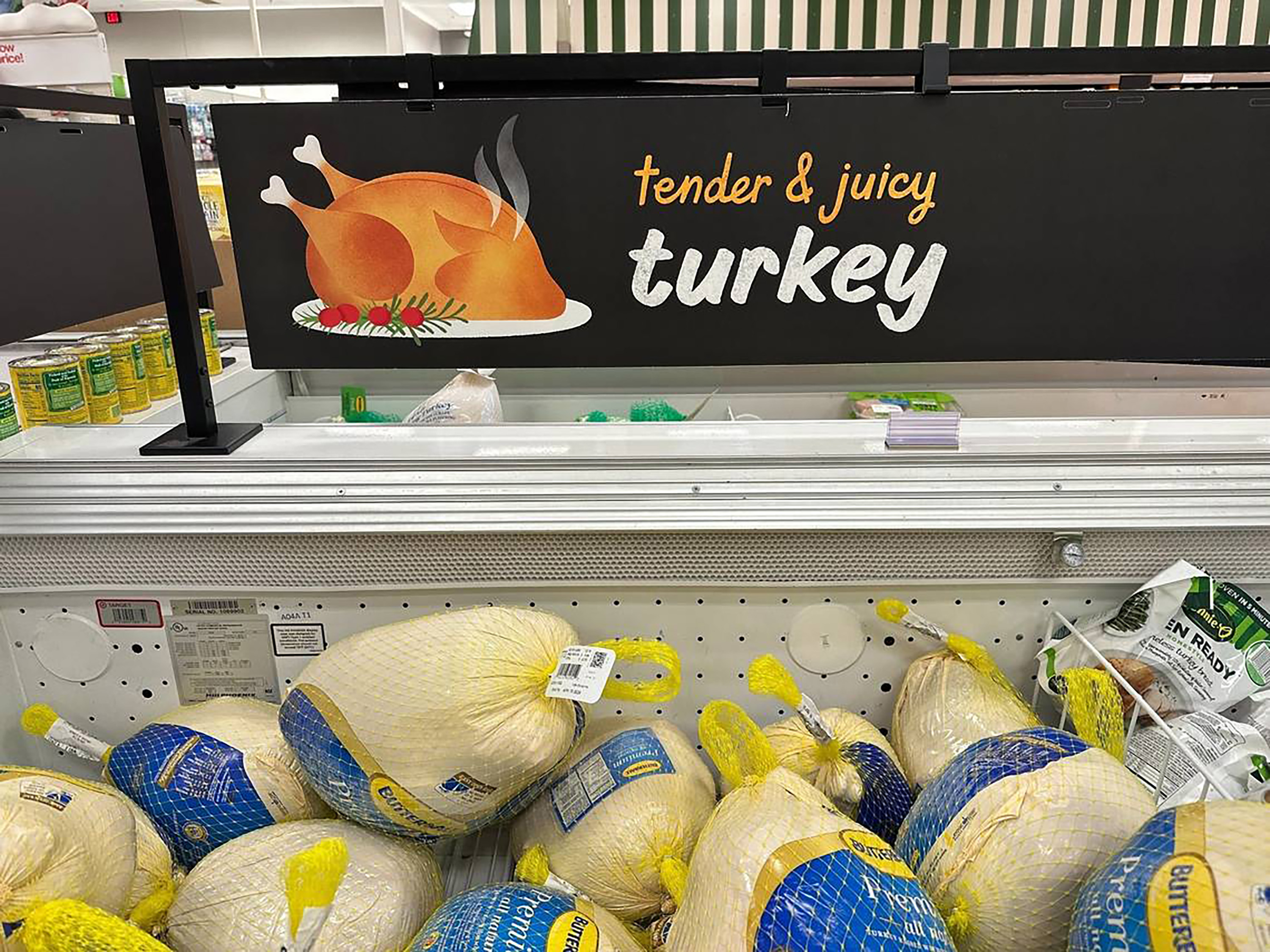
Butterball turkeys on sale in a store in Fresno, California on November 21, 2024 | Source: Getty Images
A spectator noted, “Wish I knew this a week ago and i [sic] don’t have my receipt to take it back 🤦🏾♀️😭,” while someone else vowed, “I will never eat it ever again!” “I no longer want to eat a turkey but cuddle and cry with one instead, this is horrible 😭😭,” added another person.
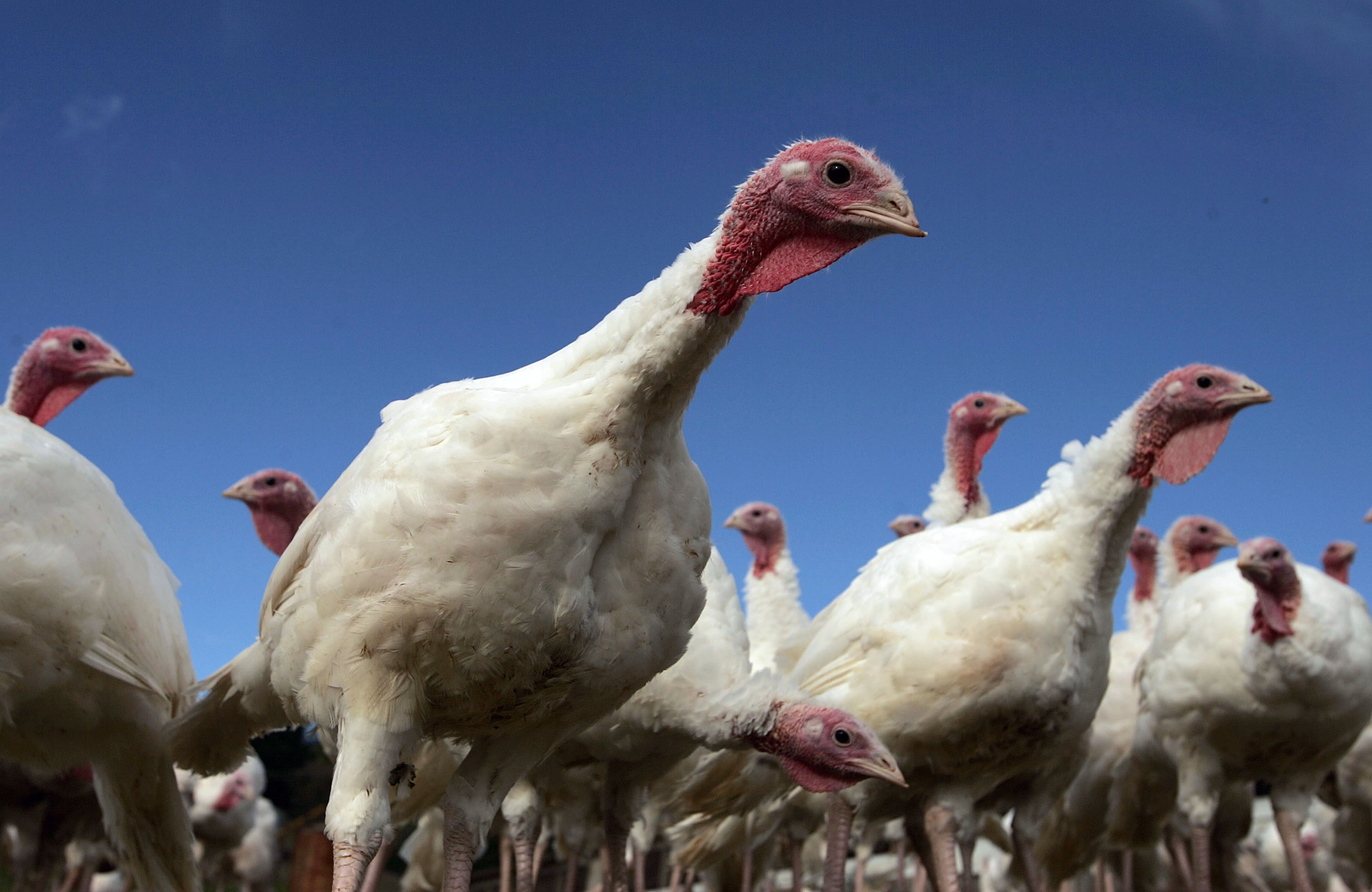
Turkeys on a Sonoma farm in California. | Source: Getty Images
An Instagrammer who mentioned an alternative Thanksgiving food option pondered, “Is it better to have tri tip for thanksgiving [sic]? I know it breaks tradition but it certainly tastes better.”
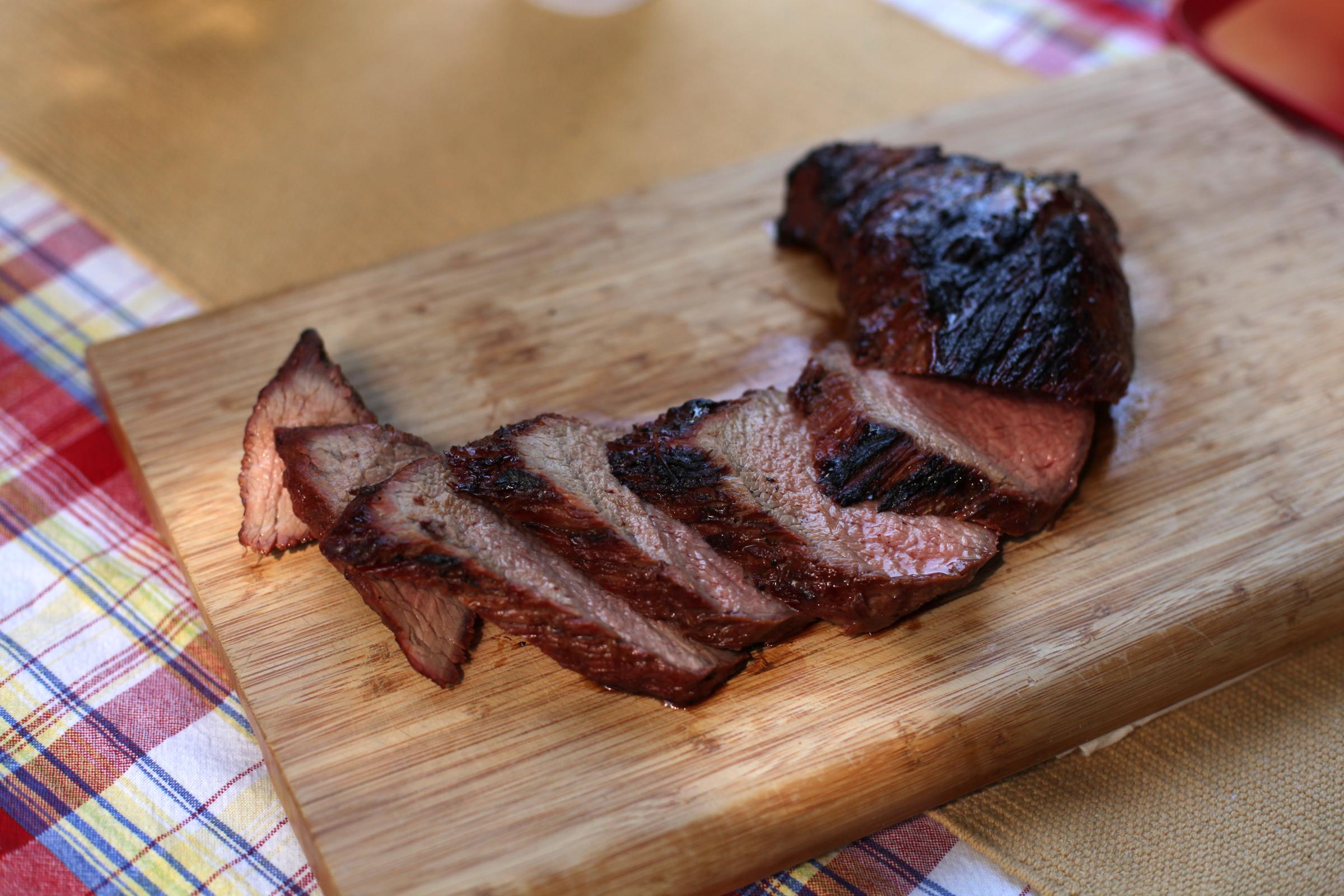
A photo of cooked pieces of tri-tip taken in Denver, Colorado on June 23, 2017 | Source: Getty Images
Although most people were left sickened and outraged, others questioned the credibility of the video and its timeline.
“Yall [sic] need to also add that this is NOT recent and happened 18 years ago because this is very wrong and misleading information. This video is something that happened in Arkansas between April – July 2006 […] Implementing fear in people over something that was almost 20 years ago is not right 👎🏽,” asserted a netizen, who also attached a link to a Daily Mail article about the abuse.
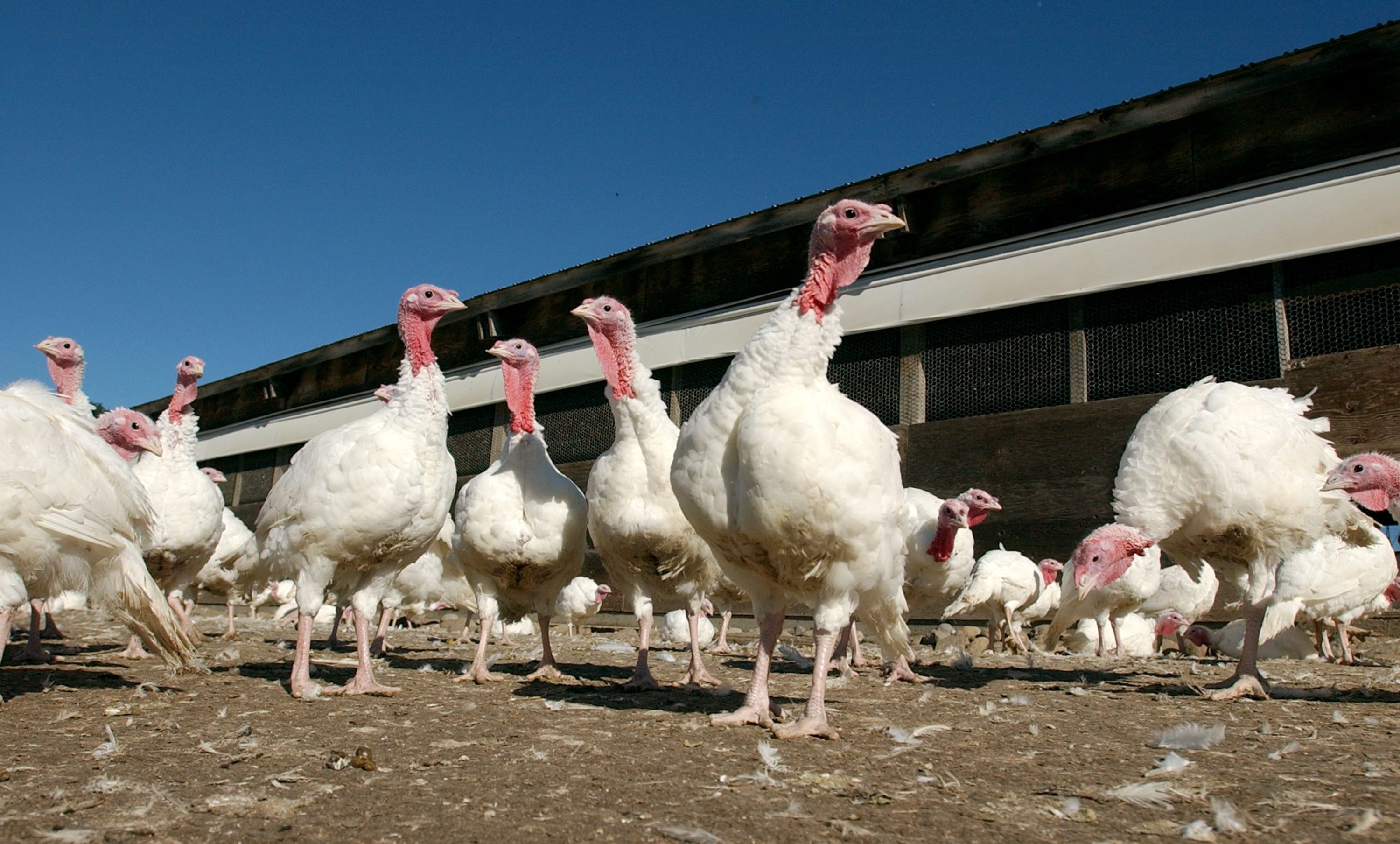
Turkeys walking around their pen in Sonoma, California on November 25, 2002 | Source: Getty Images
Another wrote, “Is this new footage or is it the same video from several years back? It matters and the truth will come out…”
Echoing the sentiment, someone else wondered, “Isn’t this from a 2006 investigation? Or are these new videos?” while a netizen stated, “Allegations stemming from a 2006 incident where all parties were charged. I hate you peta [sic].”
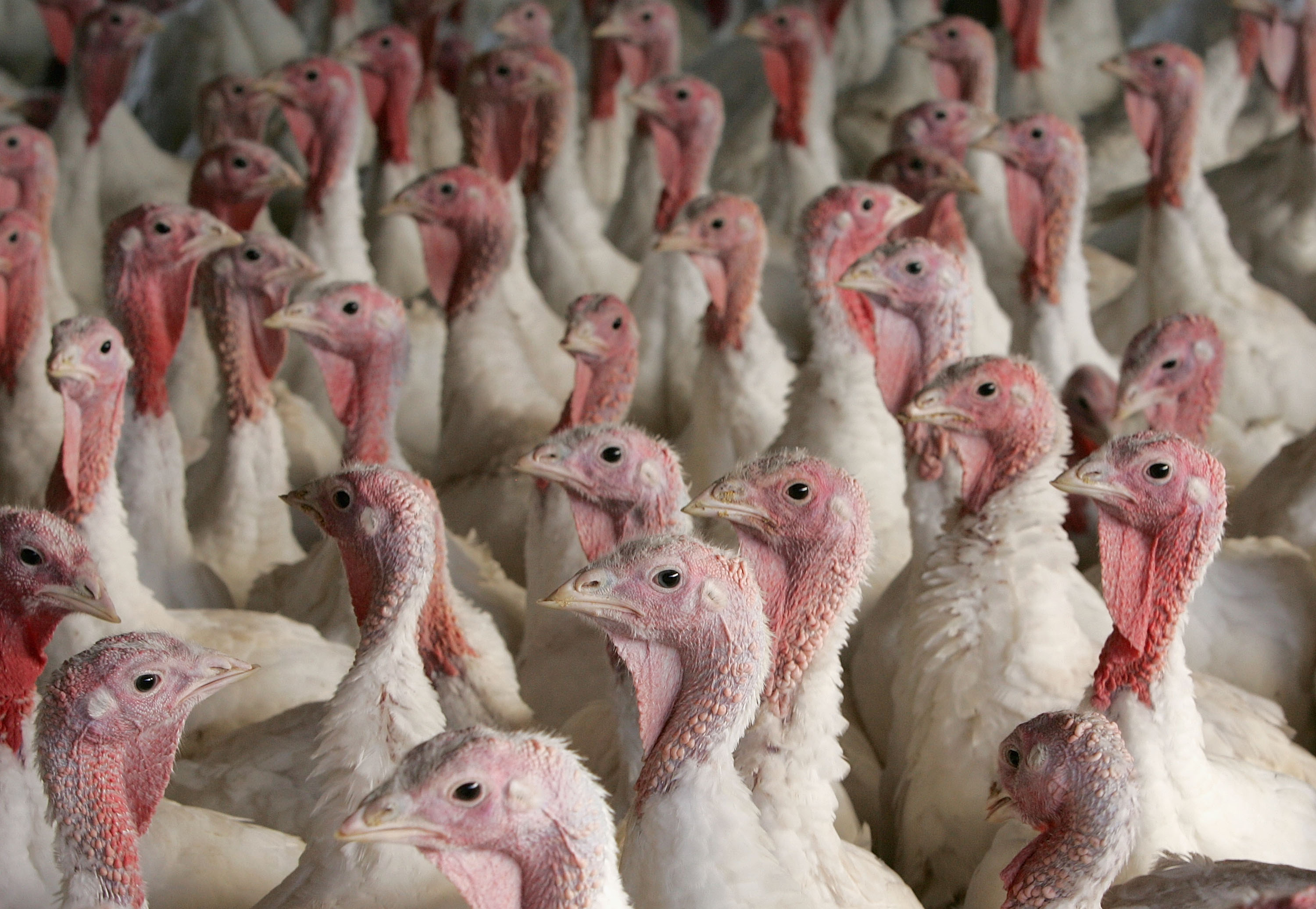
A close-up shot of turkeys in Sonoma, California on November 22, 2004 | Source: Getty Images
Similar comments ensued, with yet another observer highlighting, “This video it’s 20 years old everyone needs to do their research [sic].” “this happened in like 2006, those ppl were fired, it doesn’t happen anymore,[sic]” said a social media user.
Meanwhile, an Instagrammer questioned, “This investigation was done back in 2006, correct? Can you share what has been done since then to correct this?”
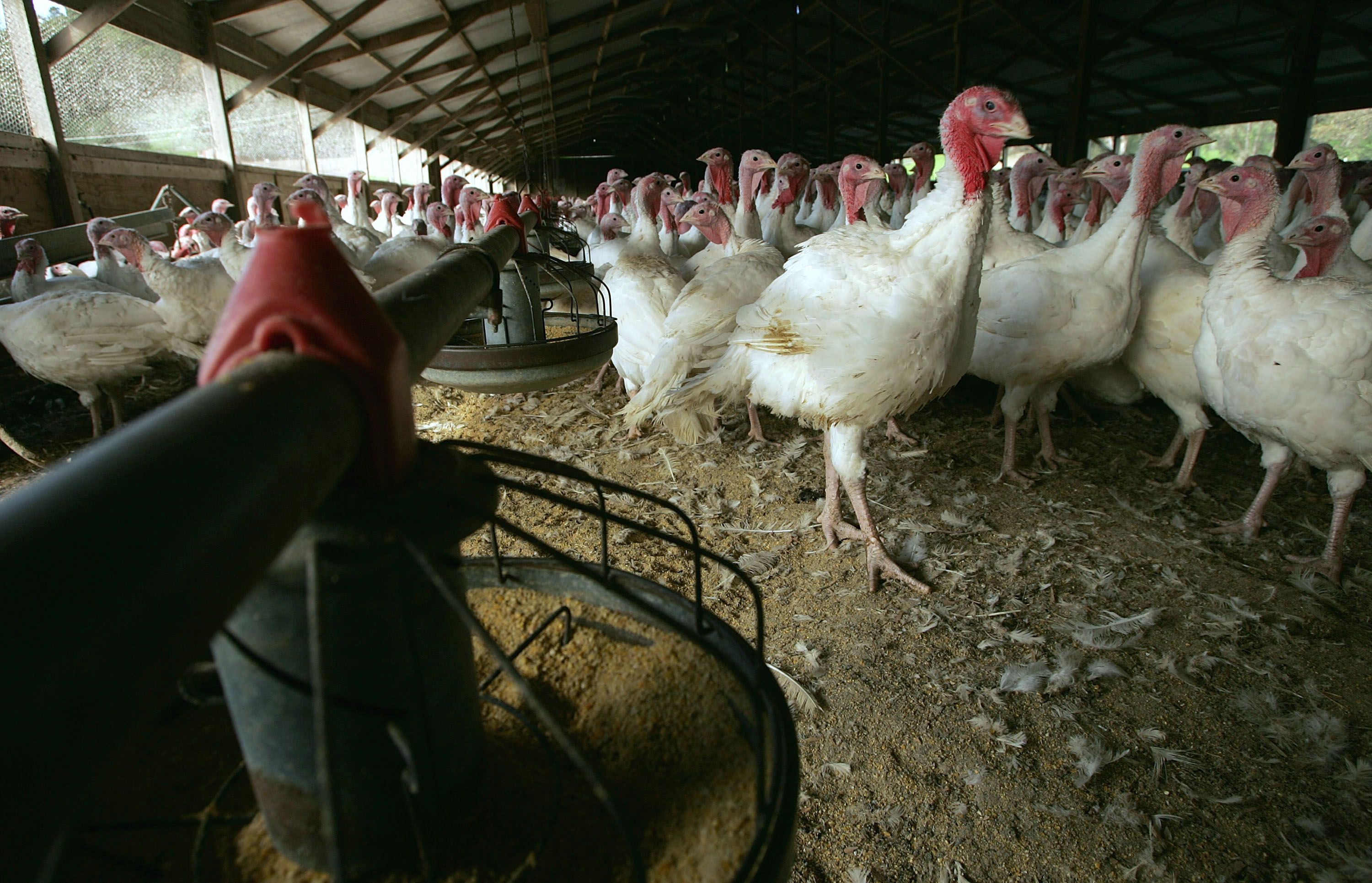
Turkeys | Source: Getty Images
In response to PETA resurfacing the almost two-decade-old video ahead of Thanksgiving, Butterball clarified that the video is “not current” and that it “was taken prior to Butterball becoming a private company.”
They also noted that the incidents happened before their “engagement and certification through American Humane.”
“Animal care and well-being is central to who we are as a company, and we are committed to the ethical and responsible care of our flocks,” confirmed a Butterball spokesperson.
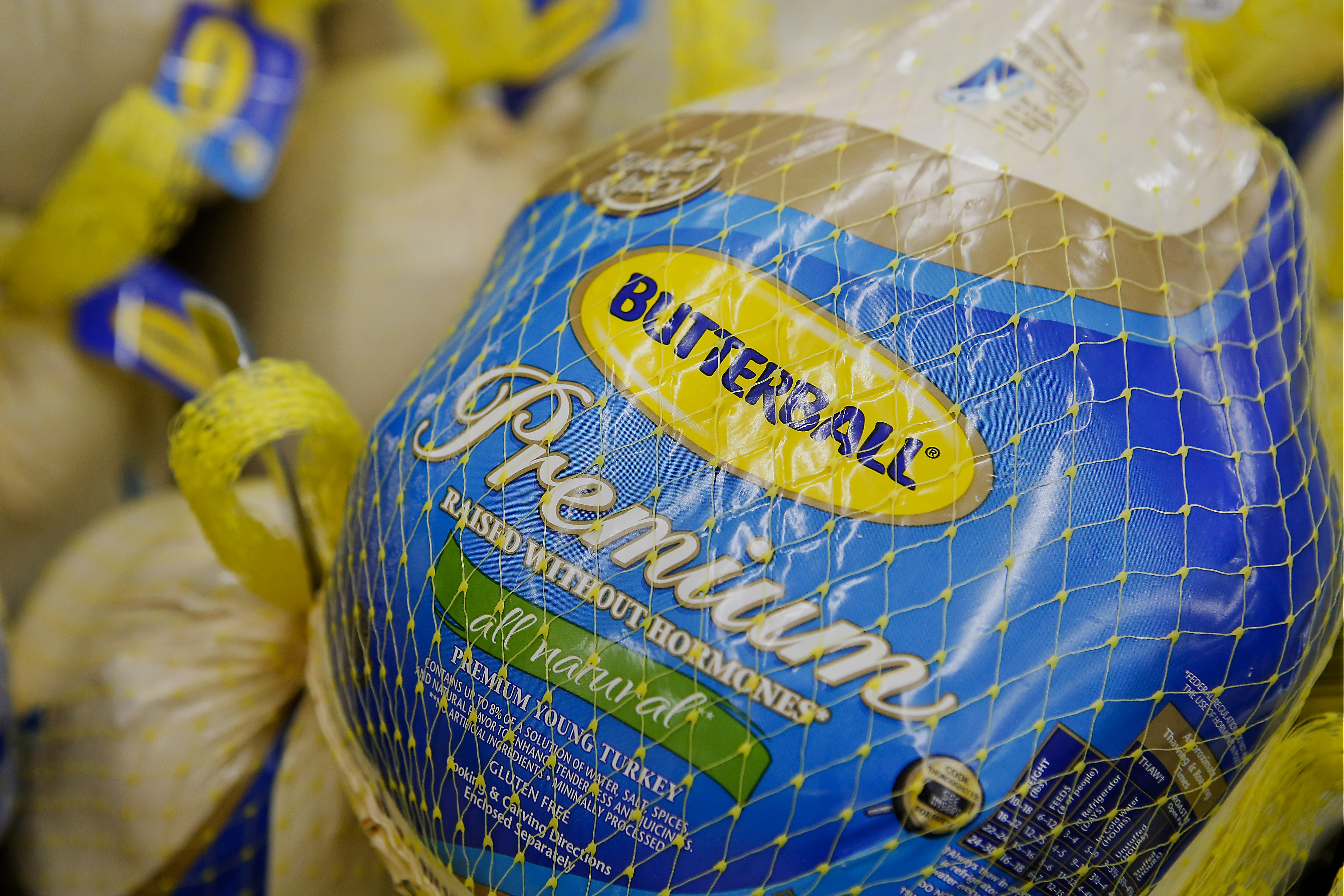
A close-up of a Butterball turkey on sale at a Wal-Mart in Los Angeles, California on November 26, 2013 | Source: Getty Images
The spokesperson went on to disclose that Butterball was the first turkey company to be American Humane certified 11 years ago and continues to be the only one.
“That means we have yearly audits conducted by a third party to ensure compliance with our 200+ science-based standards of best practice for care of our turkeys, well exceeding industry best practices [sic],” pointed out the spokesperson, who sent these statements to USA Today via email.
According to USA Today, Butterball also addressed swirling rumors concerning a Butterball turkey recall, which they confirmed are false, as there are currently no recalls in place.
Outside of online reports, Butterball, and social media users clarifying that the accusations made in the video are from 2006, articles on PETA’s website about the ordeal also confirm that the instances of abuse occurred between April and July 2006.
At that time, the animal organization stated that it had conducted an undercover investigation at a Butterball plant.
Two days after posting the 2006 video, PETA released a notice on their website announcing their plan to confront Thanksgiving shoppers with a “Hell on Wheels” turkey truck outside Janssen’s Market.
They will attempt to deter shoppers from purchasing turkeys by intercepting them with a “hyperrealistic turkey transport truck covered with images of the birds crammed into crates” on their way to the farm.
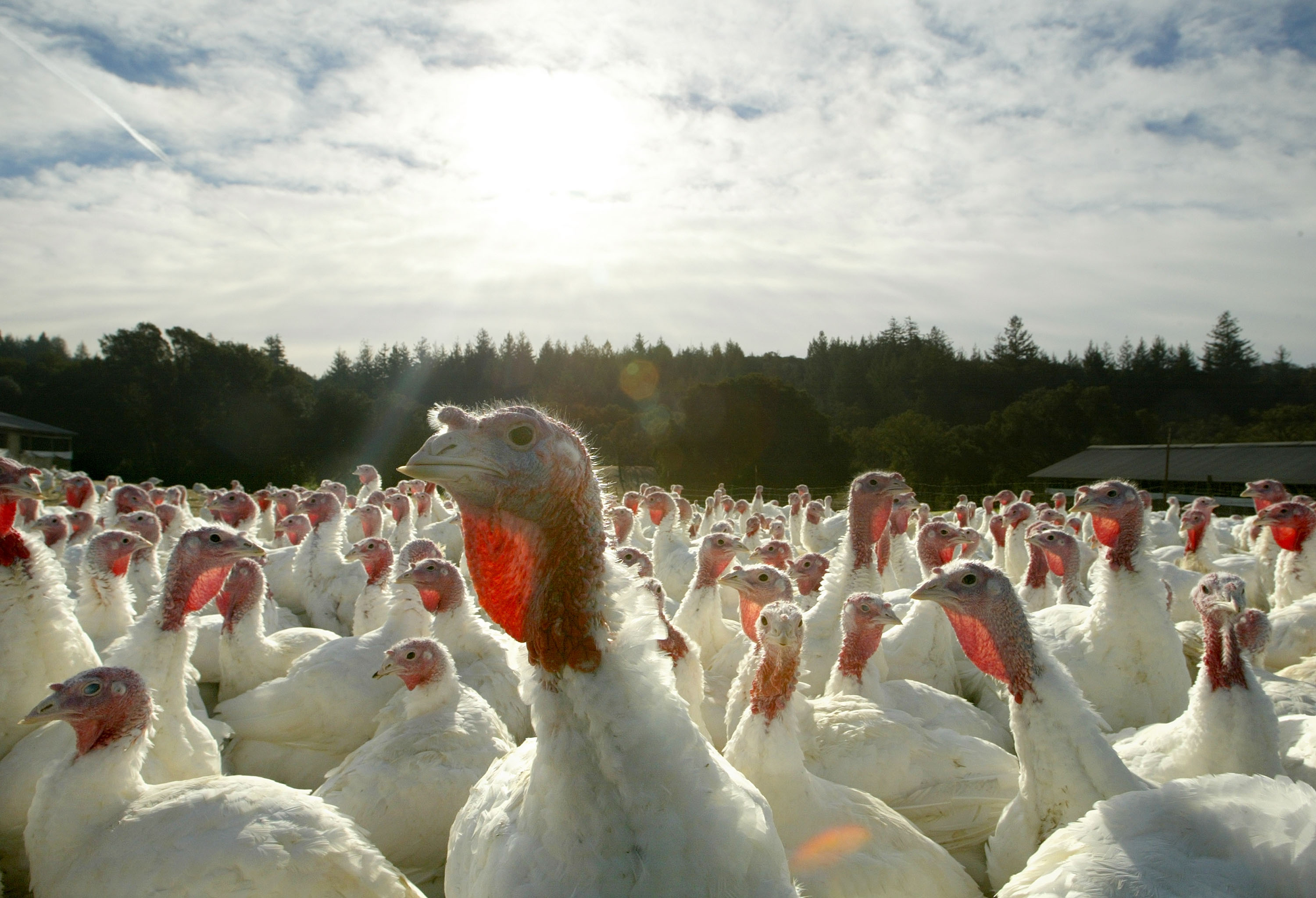
Turkeys in their pen on a farm in Sonoma, California on November 24, 2003 | Source: Getty Images
The vehicle will also have audio playing sounds of bird cries and a subliminal message suggesting that people opt for vegan options instead of turkey. In addition to their upcoming appearance at Janssen’s Market in Washington today (November 27) at noon, PETA’s “Hell on Wheels” will tour across 30 states.
They aim to bring more awareness to the fact that turkeys are complex creatures capable of experiencing emotions and caring deeply for their offspring, and to “stop the annual cycle of cruelty.”
Their bulletin notice also lists vegan alternatives for Thanksgiving like a hazelnut and cranberry plant-based roast, “Gardein’s Plant-Based Turk’y Roast, and Tofurky’s Plant-Based Roast & Wild Rice Stuffing,” which they say are available in-store and online.
On November 26, PETA took to X to share a post showing a video of a woman gently caressing a turkey on a farm to show viewers how the animals should be treated.
“This is how all turkeys deserve to be handled 🧡 The only way to ensure your #Thanksgiving turkey wasn’t horrifically abused is to leave them off your plate! #ButterballTurkey,” penned PETA above their post.
